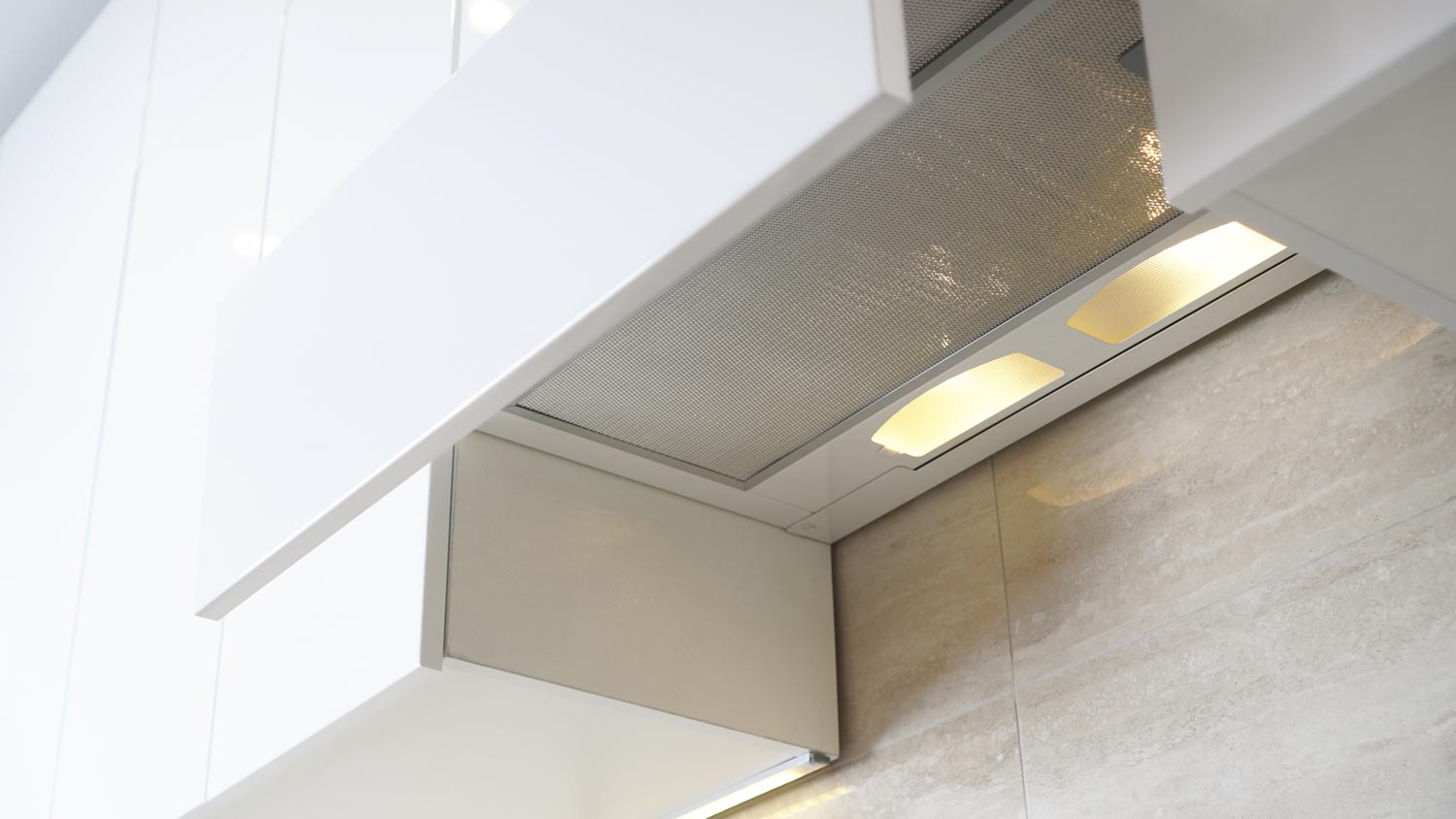
Budget for the cost to install recessed lighting based on factors such as type of light, wiring, labor, trim and finish type, and more.
You should call a licensed appliance technician to fix your range hood


The task is identifying who fixes range hoods and matching the right pro to the exact issue.
Main cost drivers include parts, labor, and whether ventilation or electrical work is required.
Professional repairs support appliance longevity and protect active warranties while improving indoor air quality.
Act quickly to avoid smoke buildup and discomfort; discuss airflow needs like CFM with your pro for better performance.
This article was created using automation technology and thoroughly fact-checked and edited by HomeAdvisor Editor Ryan Noonan.
If you're asking who fixes range hoods, hire a licensed appliance technician for issues within the hood’s mechanics and components. Choose an HVAC technician for ventilation and duct problems, and a licensed electrician for electrical failures.
Use this pro hiring guide to stay safe, protect warranties, and decide between repair and replacement based on age and damage.
Hiring a licensed appliance technician ensures safe, correct repairs that control smoke and odors and protect your warranty. A pro delivers long‑lasting results, may prevent premature replacement, evaluates airflow needs, and advises when an older unit should be replaced.
Consider other benefits of hiring an appliance technician:
Pinpoints issues within controls, filters, motors, and blades
Restores airflow by cleaning or replacing clogged filters
Repairs failed fan motors or damaged blades
Maintains active manufacturer and workmanship warranties
Advises replacement when the hood is over 10 years
Evaluates airflow needs and CFM for your kitchen
Reduces smoke and cooking odors quickly
Confirms the hood operates correctly after service
If you’re facing persistent issues or complex repairs, you might want to consider an appliance repair pro near you to ensure the job is done safely and effectively.
In some cases, another pro is the better fit. HVAC technicians address ventilation issues such as disconnected ducts, alignment problems, and clogs that limit airflow. Electricians handle blown fuses, faulty breakers, old wiring, and loose connections. Skip a handyperson for electrical work—electrical repairs are dangerous and require a licensed electrician. Choose the pro that aligns with the underlying issue rather than defaulting to an appliance tech.
Appliance technicians follow this process to fix range hoods:
Diagnose the issue by testing controls and airflow.
Clean or replace clogged air filters to restore intake.
Repair or replace a broken fan motor or blade as needed.
Verify operation and airflow, then explain findings and next steps.
Recommend replacement when the hood is over 10 years old or severely damaged.
If replacing, help plan a new unit selection and design ideas.
For minor issues, expect $85 to $210 for parts and labor. More extensive repairs run $300 to $500. General kitchen appliance repair falls between $50 and $400, and installing a new range hood averages $650 to $2,500. Pricing varies by damage severity, needed parts, and whether ventilation or electrical corrections are required.
From average costs to expert advice, get all the answers you need to get your job done.

Budget for the cost to install recessed lighting based on factors such as type of light, wiring, labor, trim and finish type, and more.

Discover the cost of installing a new door, including factors such as location, size, materials, hardware, and local labor rates.

Discover how much an electric furnace costs based on factors such as unit size, local labor rates, electrical upgrades, and ductwork condition.

Not sure who to hire to install a range hood? Learn which pros handle range hood installation and when to call contractors, electricians, or HVAC.

Wondering who fixes leaking range hood issues? Learn who to call, why it’s leaking, and how pros repair range hood vent leaks.

Wondering about ductwork installation costs for your home? Explore pricing breakdowns by material type, home size, and testing requirements.